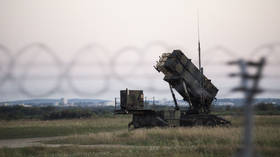India’s Sharia law board says women may pray in mosques as petition asks top court to declare entry ban ‘unconstitutional’
India’s Muslim law board has advised the Supreme Court that nothing in the tenets of Islam bars women from praying in mosques. The non-profit noted that the court should not have a say in the religious issue, however.
The All India Muslim Personal Law Board (AIMPLB) responded to a request by India’s Supreme Court to comment on the petition filed by a Muslim couple. Yasmin Zuber Ahmad Peerzade and her husband Zuber Ahmad Nazir Ahmad Peerzade have asked the court to formally renounce any restrictions that women face as they attempt to enter a mosque, calling the practice “not only repugnant to the basic dignity of a woman as an individual” but “also violative of the fundamental rights.”
The pair argued that while some mosques allow unimpeded access to female believers, many sites that belong to the Sunni branch of Islam either bar women from entering or have certain rules they must obey – such as entering via a separate entrance or praying in certain spaces where men are not allowed to go.
"The present respondent (AIMPLB) has taken a stand, as per Islamic texts, that entry of woman into mosque for namaz is permitted. Any other 'fatwa' to this effect may be ignored,” the organization said Wednesday.
AIMPLB is a non-government organization set up in 1973 to ensure proper protection of Sharia law in the private lives of India’s Muslims.
Also on rt.com Indian women's college bans burqas as part of dress code crackdownAlthough it is not “obligatory” for Muslim women to join congregational prayers – including the traditional Friday prayers – a woman “is entitled to the same religious reward for praying as per her option either in masjid [mosque] or at home,” the group added.
While siding with the petitioners, the AIMPLB did point out that a ruling on such a purely religious matter should be outside of the purview of India’s top secular court. The way Islam is practiced at each place of worship should be decided by the custodians of the mosques themselves, they added.
Neither the AIMPLB nor “this court for that matter, cannot enter into the arena of detailed arrangements of a religious place, which is completely privately managed entity for religious practices of believers in a particular religion,” the group said in the filing.
Think your friends would be interested? Share this story!














